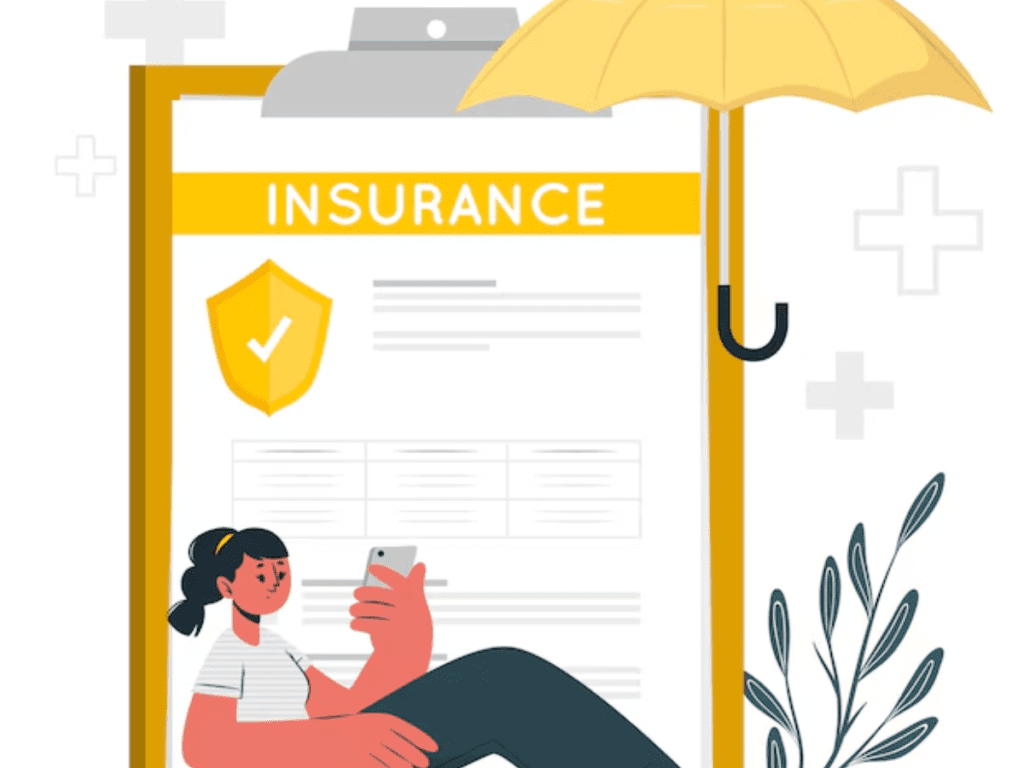Introduction
Insurance is an important part of financial planning because it provides coverage against unforeseen losses However most individuals are reluctant to buy insurance because of common misconceptions These myths can result in poor choices leading to poor coverage or excessive spending Knowing the facts about insurance is vital in making sound financial decisions
This article uncovers typical insurance myths and gives insight into what people should know before purchasing a policy By shattering these misconceptions individuals are able to make the right decision in selecting coverage and being financially secure
Myth 1 Insurance Is Only for the Wealthy
Reality Insurance is for everyone irrespective of income level
Most people think insurance is a luxury only for the rich
In real life insurance is a financial product intended to bring stability to individuals and families of all income groups
Without insurance an unforeseen occurrence like a medical problem car crash or damage to property can leave one with a huge financial responsibility
For instance if a middle-income family experiences a huge medical bill without being insured they will be required to exhaust their savings or fall into debt Health insurance reduces these expenses alleviating financial pressure Likewise home insurance guards property owners against huge losses from catastrophes so that they do not take the full brunt of finance alone
Myth 2 Young and Healthy Individuals Do Not Require Insurance
Reality Accidents and sicknesses can occur at any age
Many young individuals believe they do not need insurance because they are healthy and unlikely to face medical issues However life is unpredictable and accidents or sudden illnesses can occur at any time Without health insurance even a minor medical emergency can lead to significant expenses
Besides, buying life insurance when young also benefits because premiums tend to be cheaper When people wait until older or get ill their insurance rates hike considerably Insurance that is taken earlier guarantees long term financial protection at a minimal expense
Myth 3 The Cheapest Policy Is Always the Best Option
Reality A low cost policy may not provide adequate coverage
Although it is tempting to opt for the cheapest insurance policy low cost policies tend to have reduced coverage high deductibles and exclusions that may not cover critical needs A low-cost policy can save money in the short term but might end up costing more out of pocket in the event of an emergency
For example a low budget health insurance scheme may only provide coverage for limited medical procedures making costly treatments the responsibility of policyholders Likewise a minimum auto insurance policy may not include comprehensive and collision coverage that may leave the owner of a car exposed in the event of theft or accident
Rather than concentrate on price, people should shop around for the best coverage benefits and policy conditions A bit of a higher premium could be in the form of better coverage to avoid financial hard times in the future
Myth 4 Life Insurance Is Only for Those with Dependents
Reality Life insurance is useful even to those without dependents
Life insurance is generally equated with giving economic assistance to dependents upon the death of the policyholder However this is an important advantage life insurance can be used for other functions as well
For people who do not have dependents life insurance can be used to pay off debts like student loans or a mortgage so that financial burden does not fall on relatives It can also be utilized to pay for funeral costs minimizing the financial burden on loved ones Moreover certain life insurance policies earn cash value over time which can be utilized as an investment vehicle
Even individuals who do not presently have dependents can have future financial obligations Buying life insurance at an early age helps secure lower premiums and guarantees coverage later in life
Myth 5 Home Insurance Covers All Types of Damage
Reality Standard home insurance policies have exclusions
Most homeowners are convinced that the policy they own includes all sorts of damage but the majority of typical policies are exclusionary There are common exclusions such as flood earthquake and negligence damages With extended coverage the homeowner might not be required to assume the costs of repairs himself
For instance if one is a resident in a flood-prone area then they might require buying separate flood insurance to cover their property Likewise earthquake insurance will be required in areas where there is frequent seismic activity Reading the policy wording and buying extra cover if required is imperative for full protection
Myth 6 Car Insurance Covers Everything
Reality Car insurance coverage relies on the type of policy
A few drivers presume that with automobile insurance, they are covered in case of every kind of damage However not every policy is of the same caliber
A basic liability insurance policy covers other vehicle and property damages but not the policyholder s car in event of an accident. Comprehensive and collision coverage is needed to safeguard against theft vandalism and car damage caused by accidents or natural disasters
Also some policies may not pay out in cases where personal belongings are stolen from a car or if damage is caused by an uninsured motorist Knowing the various forms of car insurance and choosing the right coverage depending upon one’s needs is important
Myth 7 Health Insurance Pays For Everything
Fact Health insurance has deductibles co pays and exclusions
Most individuals think that they will not have to pay for medical bills out of pocket if they have health insurance In reality most health insurance policies have deductibles co pays and exclusions for some treatments Policyholders need to know their policy terms so that they can understand what is covered and what they might have to pay
For example, some policies do not include elective procedures, alternative treatments, or experimental medication in their coverage. Some other policies also compel policyholders to avail themselves of certain healthcare providers to get maximum coverage. Awareness of these facts beforehand prevents extra expenses and allows for proper planning of medical expenditure.
Myth 8 Employer Provided Insurance Is Always Sufficient
Reality Employer sponsored insurance may not provide complete coverage
Most employees depend only on their company provided insurance hoping that it would give them all the protection they need. However, employer sponsored health and life insurance coverage usually has limitations like coverage caps high deductibles or no dependent coverage.
Moreover employer sponsored insurance is employment related such that coverage is lost should they switch to another job or become unemployed For continuous protection to be guaranteed staff ought to include supplemental insurance packages that cover what the employer lacks
Myth 9 Insurance Payments Are Always Speedy and Simplistic
Reality Claims processing consumes time and it relies on policy conditions and paperwork
Filing an insurance claim is taken for granted by some individuals that they will be paid out instantly However, insurance providers have a process to ensure that claims are authenticated which might take time Based on the insurance and claim complexity, policyholders can be required to submit documents and undergo a testing process
For example in life insurance claims, beneficiaries might be required to provide medical reports and a death certificate prior to receiving the payment Likewise home insurance claims might involve damage reports prior to the insurance company paying out compensation Knowing the claims process and having the documents ready beforehand ensures a hassle-free experience
Myth 10 You Can Buy Insurance Anytime Without Repercussions
Reality Delaying insurance purchase can lead to higher premiums and limited options
Most individuals delay buying insurance thinking that they can obtain coverage at any time. However, delaying the purchase of life or health insurance can lead to increased premiums and few options
Insurance premiums are also determined by risk factors like age health status and medical history As people age or acquire health problems they might experience increased costs or pre existing condition exclusions on their insurance Furthermore some insurance plans have waiting periods before benefits activate so instant coverage might not be accessible when necessary
Buying insurance early secures lower premiums and provides constant protection before anything unexpected happens
How to Select the Right Insurance Policy
Knowing these popular myths enables one to make the right choice when choosing an insurance policy Here are important steps to make the right choice
Determine Your Needs
Assess personal financial obligations and risks to ascertain the kind of insurance that is compulsory
Compare Various Policies
Study and contrast protection coverage benefits exclusions and premiums from different insurance companies
Read the Policy Terms Carefully
Learn the small print such as deductibles co payments exclusions and claim process to be surprised later
Seek Professional Advice
Seeking advice from an insurance advisor or a financial planner aids in choosing the most appropriate policy according to one’s needs
Regular Review and Updation of Policies
Needs change with time Reviewing policies from time to time ensures coverage is sufficient and up-to-date
Final Thoughts
Insurance is a crucial aspect of financial planning but myths and misconceptions often prevent people from making informed decisions By debunking these common myths individuals can better understand the importance of insurance and make choices that provide real financial protection
Whether buying health life home or auto insurance taking the time to research and choose the right policy provides long term security Knowing the facts about insurance educates people on how to protect themselves their loved ones and their financial future

